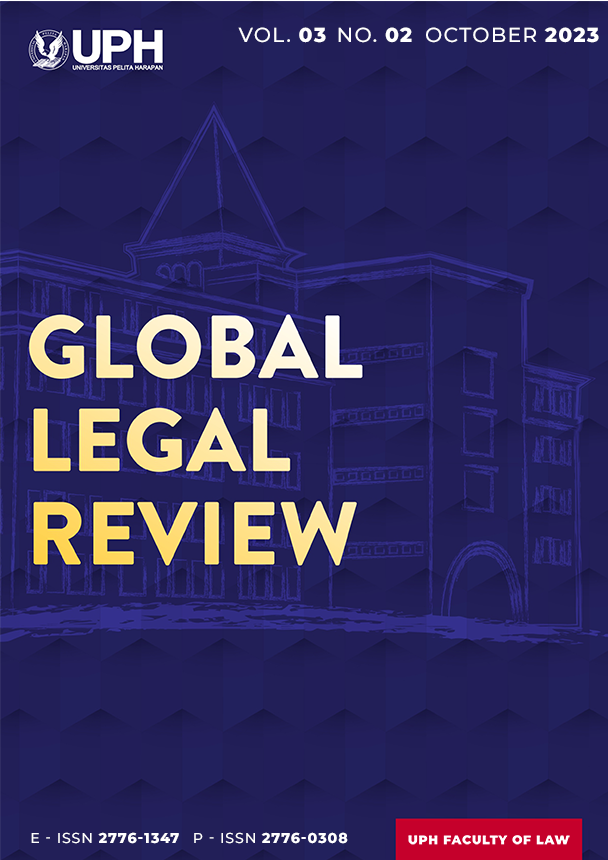The Freedom Of Opinion Expression Through Social Media And The Impact Of Acts Of Defamation To The Perpetrator
DOI:
https://doi.org/10.19166/glr.v3i2.6738Keywords:
freedom of expression, defamation, social mediaAbstract
This study aims to conduct a juridical review of Article 27 Paragraph (3) of Law Number 11 of 2008 concerning Information and Electronic Transactions relating to freedom of expression and acts of defamation through social media. This study uses a normative legal research method with a literature study approach. The effectiveness of Article 27 Paragraph (3) of Law Number 11 of 2008 in protecting freedom of opinion and overcoming acts of defamation through social media is still limited. Some of the obstacles faced include unclear regulations, limited law enforcement capacity in dealing with cases of defamation on social media, and problems in gathering legal and acceptable electronic evidence in court. Several recommendations to increase the effectiveness of Article 27 Paragraph (3) in overcoming acts of defamation through social media are; further clarification regarding the provisions of Article 27 Paragraph (3) ITE so can be interpreted clearly and do not leave room for different interpretations, increasing the capacity of law enforcement, regulations regarding the collection of electronic evidence that is valid and admissible in court needs to be clarified, wider outreach to the public regarding the risks and legal consequences of acts of defamation through social media and periodic evaluation of the implementation of Article 27 Paragraph (3) of ITE in dealing with defamation cases through social media. Therefore, continuous efforts are needed to increase understanding, awareness, and law enforcement regarding Article 27 Paragraph (3) in overcoming acts of defamation through social media so that freedom of expression can be exercised in a balanced way by avoiding actions that violate the law.
References
Ramli, Ahmad M. Cyberlaw and HAKI in the Indonesian Legal System. Jakarta: PT Refika Aditama, 2014.
Krisnawati, Dani, and Eddy O. S. Hiariej. Bunga Rampai Hukum Pidana Khusus. Jakarta: Pena Pundi Aksara, 2006.
Makarim, Edmon. Kompilasi Hukum Telematika. Jakarta: Raja Grafindo Persada, 2014.
Mertokusumo, Sudikno. Mengenal Hukum: Suatu Pengantar. Yogyakarta: Liberty, 1996.
HR, Ridwan. Hukum Administrasi Negara. Yogyakarta: UII Press, 2002.
Downloads
Published
How to Cite
Issue
Section
License
Copyright (c) 2023 Ario Setra Setiadi

This work is licensed under a Creative Commons Attribution-ShareAlike 4.0 International License.
Authors who publish with this journal agree to the following terms:
1) Authors retain copyright and grant the journal right of first publication with the work simultaneously licensed under a Creative Commons Attribution License (CC-BY-SA 4.0) that allows others to share the work with an acknowledgement of the work's authorship and initial publication in this journal.
2) Authors are able to enter into separate, additional contractual arrangements for the non-exclusive distribution of the journal's published version of the work (e.g., post it to an institutional repository or publish it in a book), with an acknowledgement of its initial publication in this journal.
3) Authors are permitted and encouraged to post their work online (e.g., in institutional repositories or on their website). The final published PDF should be used and bibliographic details that credit the publication in this journal should be included.

